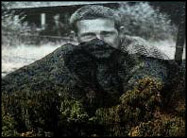

1
In the summer of 1962, lazing on the sunny beaches of Provincetown, MA, hanging out with artists and jazz musicians at night, before reporting for military service in the Fall, I was reading two books: Arthur Rimbaud's A Season in Hell; and Donald M Allen's seminal anthology, The New American Poetry, in which some of the Beat Poets made their national debut. It was here that I first read Gary Snyder's work, a portion of the "Burning" sequence from his second book, Myths & Texts. I had not read poems before that were both erudite and earthy. After reading these poems, I would change my life.
Two years later, I left New York and moved to San Francisco. One morning in the Trieste coffeehouse in North Beach, I was having a long philosophical conversation with the artist Peter Le Blanc. When I mentioned to him that I was applying for a National Endowment for the Arts grant and needed one more reference, Peter said, The universe is in a state of starvation and emotional grief because it has not been given what it needs in the form of ritual food and actual physical gifts. We think we’re getting away with something by stealing from the other side, but it all leads to violence. The Greek oracle at Delphi saw this a long time ago and said, "How about Gary Snyder?" "Terrific!" I replied. Peter went to the phone booth. When he returned, he handed me Snyder's contact information.
| Although he declined to act as a reference, we met many times over the next ten years: in the San Francisco Bay Area, Kyoto, and Kitkitdizze, his homestead outside Nevada City, CA. In 1969, recently returned from Japan with his new family, he was temporarily living in a Japanese-style house in Marin Co. |  |
I was living not far away, in the Bolinas home of physician/poet John Doss, and journalist Margot Patterson Doss, where "Ginsberg came half a dozen times and taught me to 'butter steam veggies' one Thanksgiving," while many other poets lived nearby, or visited on weekends. |
When he invited the household to dinner, that evening Snyder mentioned how at age nineteen he had mapped the path of his career. Coming from a man whose aesthetic is to make a poem as if each word were "placed solid, by hands/In choice of place, set/Before the body of the mind / in space and time," this statement seemed more constrictive than odd. Then I thought of a poem in Myths & Texts:
| I
sit without thoughts by the log-road Hatching a new myth watching waterdogs the last truck gone. |
If the myth is large enough, the vision deep enough, the path can accommodate switchbacks and precarious steps.
In 1974, I edited a small book of writing by Sam Thomas, a talented young poet who had taken one of Gary Snyder's workshops at The University of California, Berkeley. On January 8, 1970, "deeply depressed," Thomas had hung himself. Snyder wrote a generous Postnote for the book, remembering, too, his friend Lew Welch who eight months before had "walked off into the woods, leaving behind his sleeping bag, his car, his notebooks, his unfinished MSS, his wallet, his ID. He was never seen again." At the end of that extraordinary decade, living in the high desert of the American Southwest, I attempted to walk away from the influences of my past.